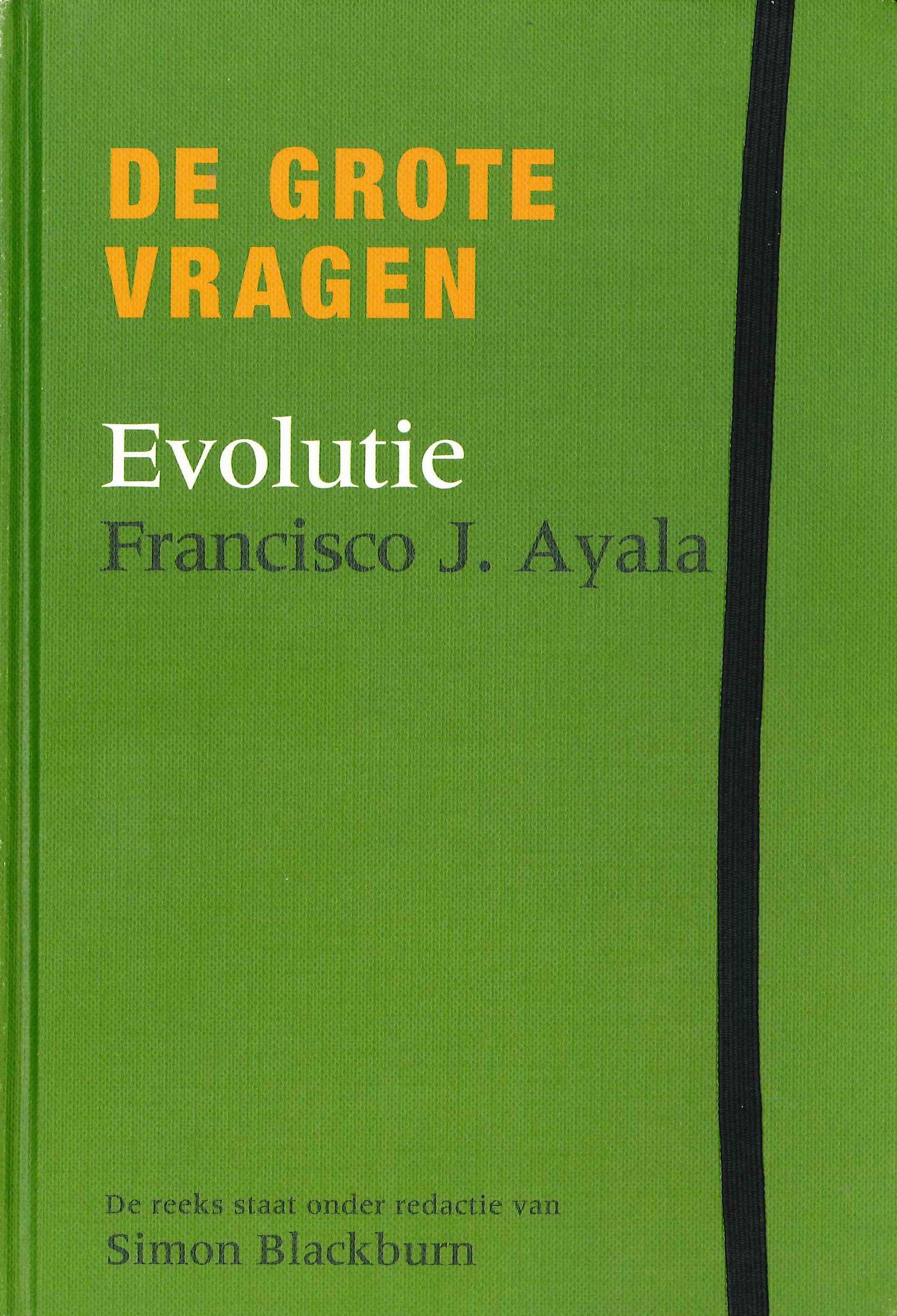n de Grote Vragen-reeks over evolutie bespreekt de Californische hoogleraar en filosoof Francisco J. Ayala de evolutie in twintig thema-gerichte hoofdstukken van gemiddeld tien bladzijden.
Met zijn verleden als dominicaner priester en gepromoveerd bioloog bekleedt Ayala een bijzondere positie in het denken over evolutie. In het hoofdstuk ‘Blijven mensen evolueren?’ rekent hij met gemak voor dat bij een menselijk genoom van drie miljard nucleotiden (genetische letters) en een mutatiesnelheid van 1 op 100 miljard, ieder individu tot dertig nieuwe mutaties oplevert, en zestig ten opzichte van beide ouders. In de huidige wereldbevolking zijn dat 420 miljard nieuwe mutaties per generatie. Ook bij de mens is de evolutie dus nog in volle gang.
Maar wat nog veel sneller gaat is de culturele evolutie. De mens past de natuur aan bij de eigen wensen en inzichten in plaats van omgekeerd. Die culturele evolutie – taal, technologie, complexe sociale en politieke structuren, ethiek en religie – is wat ons onderscheidt van de aap, terwijl de genetische overeenkomst met chimpansees 98 tot 99 procent is (zie het hoofdstuk: Ben ik echt een aap?’).
Net als andere delen in de reeks is ook dit boek een compacte, actuele en gezaghebbende rondleiding in het vakgebied.



Comments are closed.